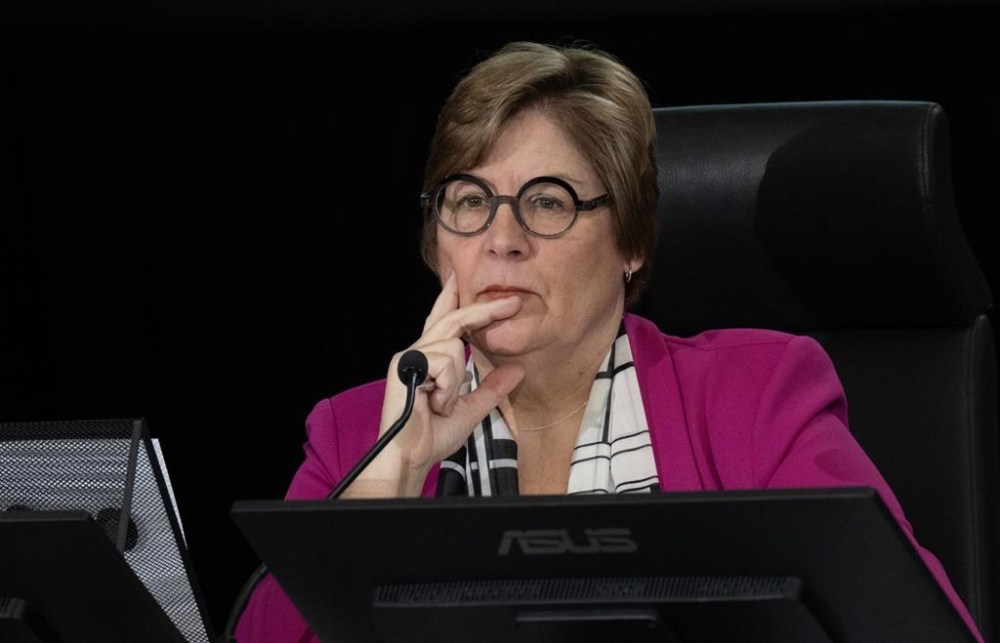Interference inquiry head says feds have signalled need for closed-door hearings
Advertisement
Read this article for free:
or
Already have an account? Log in here »
We need your support!
Local journalism needs your support!
As we navigate through unprecedented times, our journalists are working harder than ever to bring you the latest local updates to keep you safe and informed.
Now, more than ever, we need your support.
Starting at $15.99 plus taxes every four weeks you can access your Brandon Sun online and full access to all content as it appears on our website.
Subscribe Nowor call circulation directly at (204) 727-0527.
Your pledge helps to ensure we provide the news that matters most to your community!
To continue reading, please subscribe:
Add Brandon Sun access to your Winnipeg Free Press subscription for only
$1 for the first 4 weeks*
*$1 will be added to your next bill. After your 4 weeks access is complete your rate will increase by $4.99 a X percent off the regular rate.
Read unlimited articles for free today:
or
Already have an account? Log in here »
Hey there, time traveller!
This article was published 23/02/2024 (578 days ago), so information in it may no longer be current.
OTTAWA – The head of a federal inquiry into foreign interference says the government has told her it will be necessary to hear some evidence behind closed doors.
In a notice issued late Friday, commissioner Marie-Josée Hogue said the government will have the burden of convincing her that disclosure of such evidence to inquiry participants or the public could endanger national security.
If Hogue and her counsel are not persuaded by government arguments, she will require that the evidence be presented in public hearings.

On the other hand, if she agrees to a closed-door session, known as an in camera hearing, a summary of the evidence presented will be prepared for public release.
Hogue said that if the government and the commission disagree on the need to keep certain information under wraps, she will notify the government of her intention to disclose it.
In turn, the government will then have the option of bringing the dispute before the Federal Court.
“The Attorney General of Canada has already advised the Commission that it will be necessary to receive certain evidence in camera, for reasons of national security or other public interest,” the notice said.
The inquiry is delving into allegations of foreign interference by China, India, Russia or others in the 2019 and 2021 federal elections. Hearings on the substance of the accusations are expected to take place next month, with a report on the findings due May 3.
The Friday notice from Hogue followed an initial one-week hearing, held in late January and early February, that explored ways to be transparent about the highly sensitive subject.
Federal lawyers advised the inquiry that the public release — through the ongoing commission process — of detailed intelligence about interference threats from China and others would risk exposing vital secrets.
That risk, they said, is compounded by the “mosaic effect” — where adversaries track and piece together small pieces of intelligence over a long period to reveal a clearer picture.
The lawyers suggested options including the release of some material with redactions, publication of summaries of “a limited number of documents or topics” and closed-door hearings that would be followed by release of a public summary.
In the notice issued Friday, Hogue said the commission would require federal officials to justify any redactions when it believes the documents and information the government wishes to protect would be relevant and useful to inquiry participants or the public.
That could prompt commission counsel to challenge blacked-out passages, or work toward the release of summaries of the sensitive information, the notice said.
If a person who fears for their safety — or that of family or associates — files an application to testify behind closed doors, the commissioner will decide whether and how to grant such protection, the notice added.
“The Commission will prepare a summary of this testimony and, before making it public, will ascertain from the witness that nothing contained therein will put the witness or those close to them at risk.”
Public Safety Minister Dominic LeBlanc testified early this month that the inquiry will have full access to secret documents, even if some of that sensitive information can’t be made public.
Jon Doody, a lawyer for the Ukrainian Canadian Congress, one of the hearing participants, testified that there’s a big difference between the commission having access to information about foreign interference and the public having access.
“The public nature of this inquiry must exist in more than just name,” he said. “The public must be provided with as much information as possible.”
This report by The Canadian Press was first published Feb. 23, 2024.
